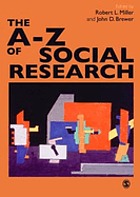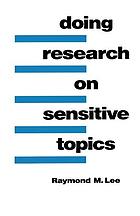
Research questions and brainstorming: Be nimble and think through where some interesting questions lie.
Heart of the problem: What is really the main point, the kernel, of what you’re researching?
Rephrasing: What are the alternate ways of phrasing your search to find more material?
Wikipedia, Google, etc.: What can you glean from the general knowledge about your topic?
Keywords and synonyms: What are the simple phrases that best describe what you’re looking for?
Targeted searching: Determine the SUBJECT information on your topic to explore and dive deeper
Revision/trial and error: This is a multi-step process and will take a lot of revision. Usually rethinking keywords.
Read: The more you read, the more sophisticated your searching will become. This is a crucial step in finding material.
Analyze: Scrutinize and interrogate what you find. Does it hold? What questions do you have of the material?
Synthesize: Think through the author’s thesis and boil their work down to drill their work into your research. Be critical.
Where does your topic fit in with your field?: Make a case for your research and find its place. Revision is important.
ID related topics: Are there fields that can help you in your research? What are those? How far do you need to go?
ID related works and authors: Find the authorities in the field as well as subsequent or superseding work
Hypothesis and new research questions: With this round of research, where do you stand? What are your questions now?
Start again!: You now have a much more sophisticated understanding of your topic. Keep going!
Define Your Topic
Choosing your topic can be a difficult process - it is important to pick a topic that is not so narrow that little if anything has been written about it, yet it is also important to pick a topic that is not so broad that there is too much information and it is impossible to develop a coherent and focused thesis.
There are numerous strategies for selecting an appropriate topic - here are a few tips to help you with that:
What is a literature review?
In brief, the lit review is the part of a scholarly paper that discusses the relevant research, theoretical and methodological contributions on the topic. Watch these videos to learn more!
Sage Research Methods
"Sage Research Methods" is a database focused on teaching research methods, designing research projects, and many other aspects of actually doing research.
(add more description)
The link to the database can be found below, and it can also be found in the Database Finder on UMD's Library website.
Research Methods in General
Here are some books that are useful in learning about and improving the research process.
Research Methods in Social Science
Here are some books that discuss researching methods specifically for the social sciences in general, and African American studies in particular.
 The A-Z of Social Research
by
Robert L. Miller; John D. Brewer
The A-Z of Social Research
by
Robert L. Miller; John D. Brewer
 Doing Research on Sensitive Topics
by
Raymond M. Lee
This book is a comprehensive guide to the methodological, ethical and practical issues involved in undertaking research on sensitive topics. Raymond M Lee explores the reasons why social research may be politically or socially contentious: its relation to issues of social or political power; its capacity to encroach on people's lives; and its potentially problematic nature for the researcher. Issues examined include: the choice of methodologies for sensitive research; problems of estimating the size of hidden populations; questions of sampling, surveying and interviewing; and sensitivity in access and the handling of data. The book also discusses the political and ethical issues at stake in the relations between the researcher and the researched, and in the disclosure, dissemination and publication of research.
Doing Research on Sensitive Topics
by
Raymond M. Lee
This book is a comprehensive guide to the methodological, ethical and practical issues involved in undertaking research on sensitive topics. Raymond M Lee explores the reasons why social research may be politically or socially contentious: its relation to issues of social or political power; its capacity to encroach on people's lives; and its potentially problematic nature for the researcher. Issues examined include: the choice of methodologies for sensitive research; problems of estimating the size of hidden populations; questions of sampling, surveying and interviewing; and sensitivity in access and the handling of data. The book also discusses the political and ethical issues at stake in the relations between the researcher and the researched, and in the disclosure, dissemination and publication of research.
Search Strategies
1. Use the following keywords to identify qualitative research.
These keywords will search the titles, abstracts and keywords of records held in the databases. Use quotations to search as a phrase:
|
|
|
2. Use controlled vocabulary
Databases use controlled vocabulary to categorize each record stored. The terms they use are known as thesaurus terms orsubject headings. The thesaurus terms vary for each database according to their indexing system.
For example, qualitative research is indexed in PubMed as "Qualitative Research" or "Nursing Methodology Research", while inCINAHL their subject heading "Qualitative Studies" is complemented by more detailed terms, including "Phenomenological Research" and "Grounded Theory".
Tutorials for searching subject headings:
 |
||||
| PubMed uses Medical Subject Headings (MeSH) | CINAHL uses CINAHL Headings |
3. Use qualitative research filters
Qualitative research filters are pre-formulated search strategies that have been constructed by librarians to help you retrieve articles in databases that deal with qualitative research. You can use the filter and then combine the results with your subject.
Modify your search strategy accordingly by using thesaurus terms, such as qualitative research, grounded theory, interviews, observation methods, etc.
